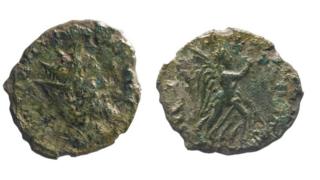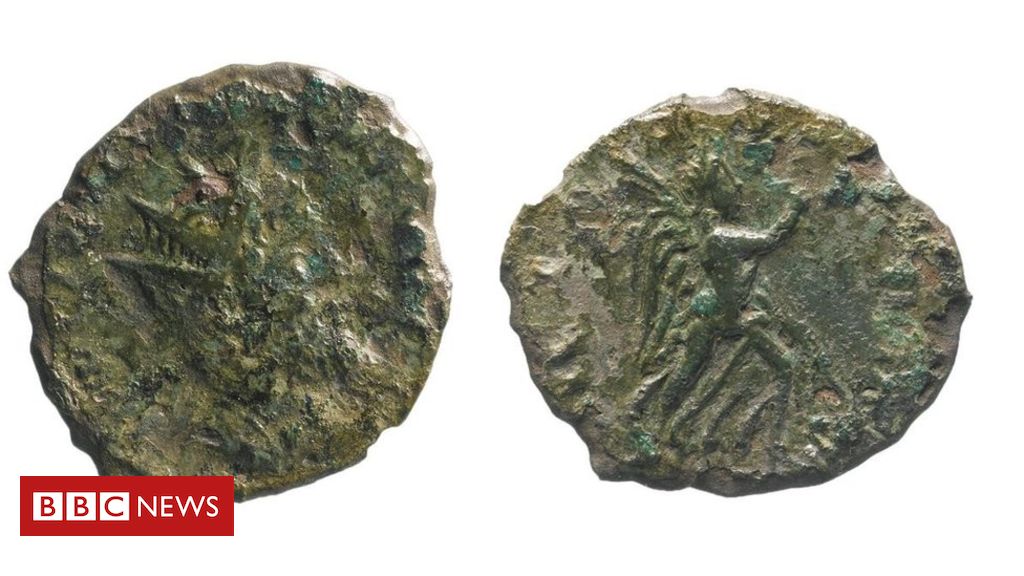 Image copyright
Image copyright
Highways England
Only one other Ulpius Cornelius Laelianus coin has been discovered in England, archaeologists said
An “incredibly rare” Roman coin minted for an ill-fated emperor has been found during work to upgrade an A road.
It depicts Ulpius Cornelius Laelianus, who reigned for about two months in AD269 before he was killed.
The discovery was made during a dig as part of Highways England’s £1.5bn scheme to improve the A14 between Cambridge and Huntingdon.
Archaeologist Steve Sherlock said the “significant’ find was only the second of its kind to be unearthed in England.
Image copyright
Highways England
Numismatist Julian Bowsher said Roman emperors were “very keen to mint coins”
The coin shows Laelianus wearing a radiant crown and was found in a ditch at a small Roman farmstead by archaeologists.
Coin expert Julian Bowsher, of MOLA Headland Infrastructure, said: “Roman emperors were very keen to mint coins – Laelianus reigned for just two months which is barely enough time to do so.
“The fact that one of these coins ever reached the shores of Britain demonstrates remarkable efficiency and there’s every chance that Laelianus had been killed by the time this coin arrived in Cambridgeshire.”
The ill-fated emperor usurped the throne and ruled a breakaway empire in what is now Germany and France before being killed, probably by his own soldiers.
Dr Sherlock, who is the lead archaeologist for the A14 project, said “discoveries of this kind are incredibly rare”.
Image copyright
Highways England
This coin is believed to be minted by a French tribe to help British resistance to Julius Caesar
Another unusual coin discovered during the dig was a Gallic War Uniface coin, minted in 57BC by the Ambiani tribe in the Somme area of modern-day France.
Experts believe it was exported to help fund the British Celtic resistance to Julius Caesar.
The A14 roadworks have also uncovered the remains of an Ice Age woolly mammoth and evidence of beer brewing dating to about 400BC.
It has also unearthed prehistoric henges, Iron Age settlements, Roman kilns, three Anglo-Saxon villages and a medieval hamlet.
The work includes creating a new bypass to the south of Huntingdon and upgrading 21 miles of road.
Image copyright
Highways England
Work to improve the A14 between Cambridge and Huntingdon is ongoing
